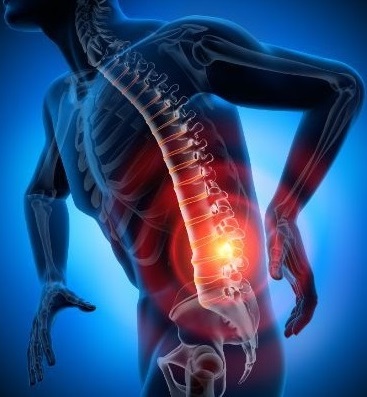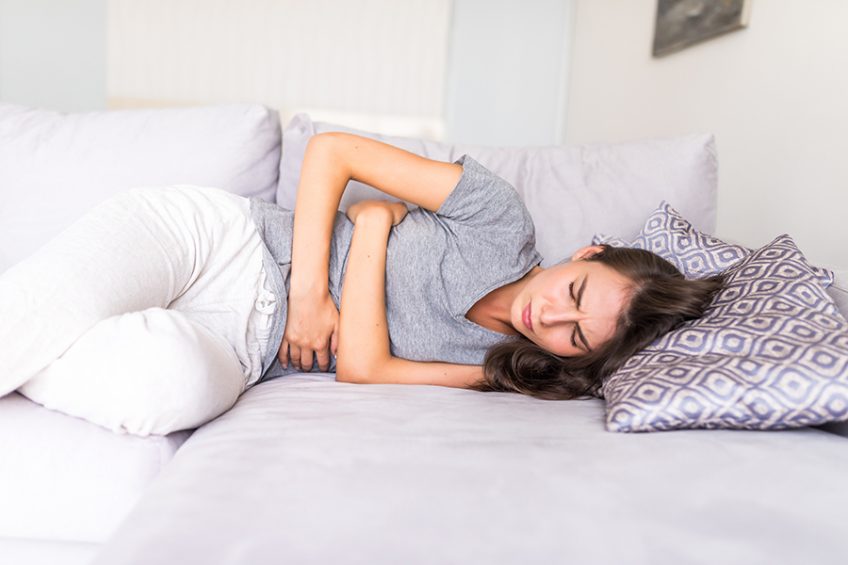Low back pain and constipation may be symptoms of a single health condition or may indicate two unrelated conditions that occur at the same time.
Both symptoms are very common and rarely indicate a medical emergency when they occur on their own, unless they are severe and last for long periods of time.
However, if they are installed simultaneously, the person should consult a doctor as soon as possible for a medical check-up.
CONTENT:
Common causes
The most common examples of medical conditions that can cause constipation and back pain at the same time are:
-
Intestinal Obstruction
This can occur for several reasons, such as the formation of a collection of hard stools that no longer move or compression on the intestine due to various causes, for example a tumor mass, preventing the stool from moving forward;
-
Endometriosis
For people with endometriosis, the normal tissue of the uterus begins to develop elsewhere in the body. These include the fallopian tubes, ovaries, intestines, or bladder;
-
Fibromyalgia
People with fibromyalgia usually have an increased predisposition to generalized pain, sleep disturbances, fatigue and gastrointestinal symptoms;
-
Inflammatory bowel disease
Is a group of medical conditions, such as ulcerative colitis and Crohn’s disease. They have a great potential to cause inflammation in the intestine, resulting in diarrhea or constipation;
-
Liver problems
Certain liver conditions, such as cancer, cirrhosis or hepatitis, can cause symptoms that include abdominal pain, nausea, constipation, itching and edema.
However, there are rare cases in which inflammation of the liver will put pressure on the nerves in the back region, causing pain at this level;
-
Pancreatic cancer
Pancreatic cancer usually does not cause symptoms in its early stages. However, as the disease progresses, various symptoms may be felt, including itching, back pain, abdominal pain, and digestive disorders;
-
Peritonitis
Peritonitis occurs when the mucosa of the peritoneal cavity is affected by inflammation, infection or both. Symptoms may include constipation, fullness of the abdomen, fatigue and pain;
-
Urinary tract infections (UTIs)
Urinary tract infections can include the kidneys, bladder and ureters. In addition to digestive symptoms, urinary tract infections, especially those of the kidneys, can cause back pain.
Women may experience both symptoms at the same time during pregnancy, as high levels of hormones can cause constipation, and an increase in the volume of the uterus can put extra pressure on the lumbar region.
Aging can also cause an increased incidence of back pain and constipation. As a person gets older, the vertebrae of the spine are affected and no longer effectively absorb shocks, thus contributing to back pain. Aging also affects intestinal peristalsis, causing constipation.
Common causes of back pain
According to researchers, about 80% of adults suffer from low back pain at some point in their lives. Back pain is usually an acute condition that can be caused by overuse or injury. However, some people may suffer from chronic back pain, lasting more than 12 weeks.
Among the most common causes of low back pain are:
-
Disc herniation
The intervertebral discs that provide shock absorption at the level of the spine can come out, then pressing on the spinal nerves. This may be accompanied by pain and discomfort in the back;
-
Osteoporosis
Osteoporosis causes a reduction in bone density, which significantly increases the risk of fractures, including the vertebrae;
-
Scoliosis and other deformities of the spine
Changes in the curves of the spine may be accompanied by low back pain;
-
Spinal stenosis
Is a condition that occurs when the spinal canal narrows. The causes are usually injuries or the natural aging process. This narrowing can cause extra pressure on the spinal cord and spinal nerves, leading to pain and loss of sensitivity;
-
Spinal tumors
Spinal tumors compress the spinal nerves, leading to pain and discomfort. However, this effect occurs quite rarely;
-
Radiculopathy
It’s occurs when a nerve becomes compressed or inflamed. The most common associated symptoms are pain, tingling, and numbness in one or both sides of the body. Sciatica is a form of radiculopathy, compressing the sciatic muscle.
Symptomatology management
It is recommended that a visit to the doctor be performed as soon as constipation is associated with back pain. Also, a visit to the doctor should be performed if the low back pain is unexplained and constipation is common.
After thorough check-ups, your doctor will recommend appropriate treatments for the condition that is causing the unpleasant symptoms.


